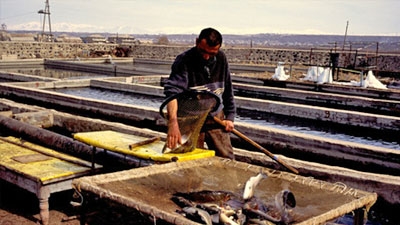November 21, 2013 – Armenia has to rethink its growth model for job creation as it leaves the global financial crisis in the rearview mirror, and lead the effort with measures such as increasing its international competitiveness, according to a new World Bank Group report.
“Accumulation, Competition and Competitiveness” emphasizes that the Armenian government needs to address to fulfill its job creation agenda – higher investment and better utilization of its labor force, stronger competition for goods and services, and better connection to world markets, both geographical and digital.
Armenia, like much of the world, reeled under the effect of the global financial crisis of 2008, which led to a significant loss in jobs for people across the country. But before that, during a five-year long boom, the country had added jobs in very few sectors, most them actually in residential construction. The boom was based on a foreign-financed expansion of the construction sector and domestic services, while exports lagged, making the country vulnerable to the global crisis.
Despite double-digit growth and important progress in poverty reduction, the boom of the 2000s failed to solve Armenia’s employment problem. Today, unemployment stands at 18 percent in the country.
At the onset of the global crisis, things got tougher when investor confidence fell and foreign exchange inflows stopped. Therefore, Armenia must look at medium- to long-term growth drivers; a different, more sustainable growth model is required post-crisis according to the report.
The four major factors essential for sustainable growth and job creation are:
- Supporting high investment - Armenia’s recent experience has shown that the sectoral allocation of investment matters, and so does the intermediation between saving and investment. Deeper financial intermediation stimulates investment.
- Better use of human resources – Creating employment requires lower impediments to firm entry and business startups, and a better business environment. The quality of Armenia’s workforce can be strengthened and made more attractive for employment by engaging employers in designing academic curricula, instituting apprenticeships and creating quality assurance mechanisms.
- Encouraging competition—Domestic competition is of crucial importance for the dynamism of the economy. Pro-competition sectoral reforms and effective implementation of antitrust rules can lead to significant productivity gains and consumer savings.
Enhancing connectivity – Armenia’s trade would benefit from improvements on the transit route through Georgia, such as better roads and a dedicated freight pavilion. Liberalization of aviation will boost passenger and cargo traffic, along with economic growth. Improving internet and communication technology, which is a huge investment draw, would also help boost growth.

